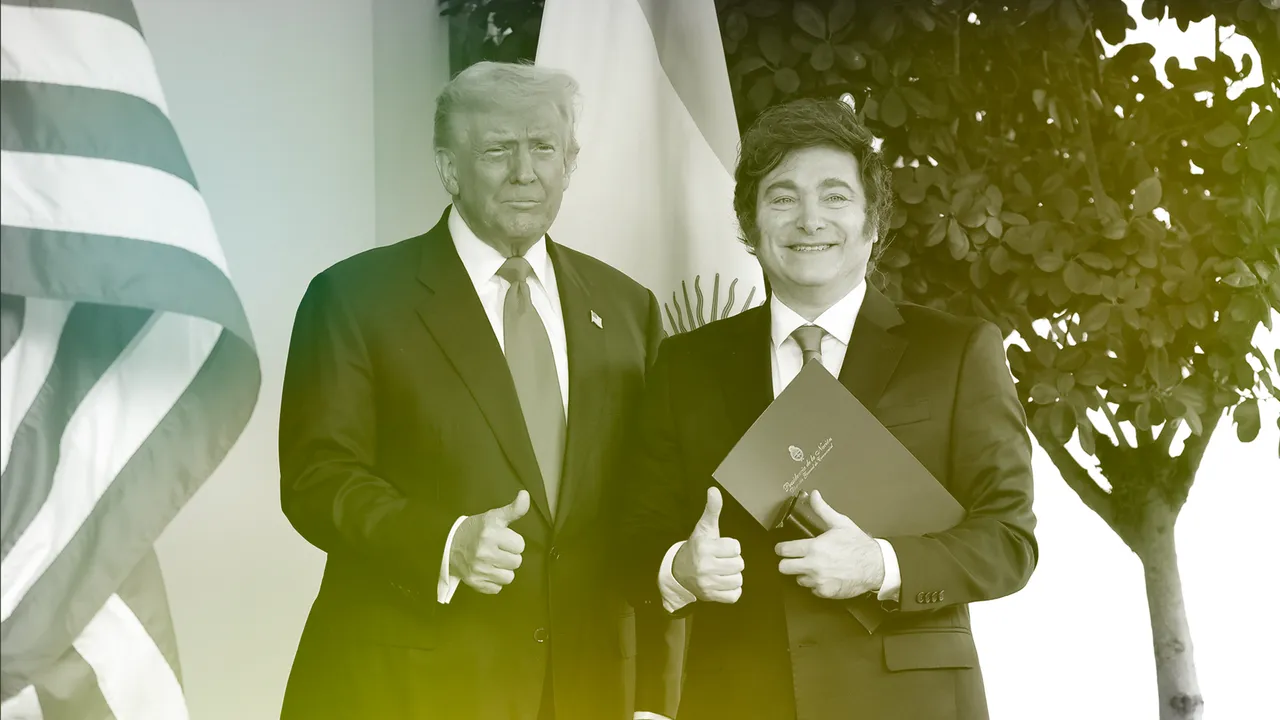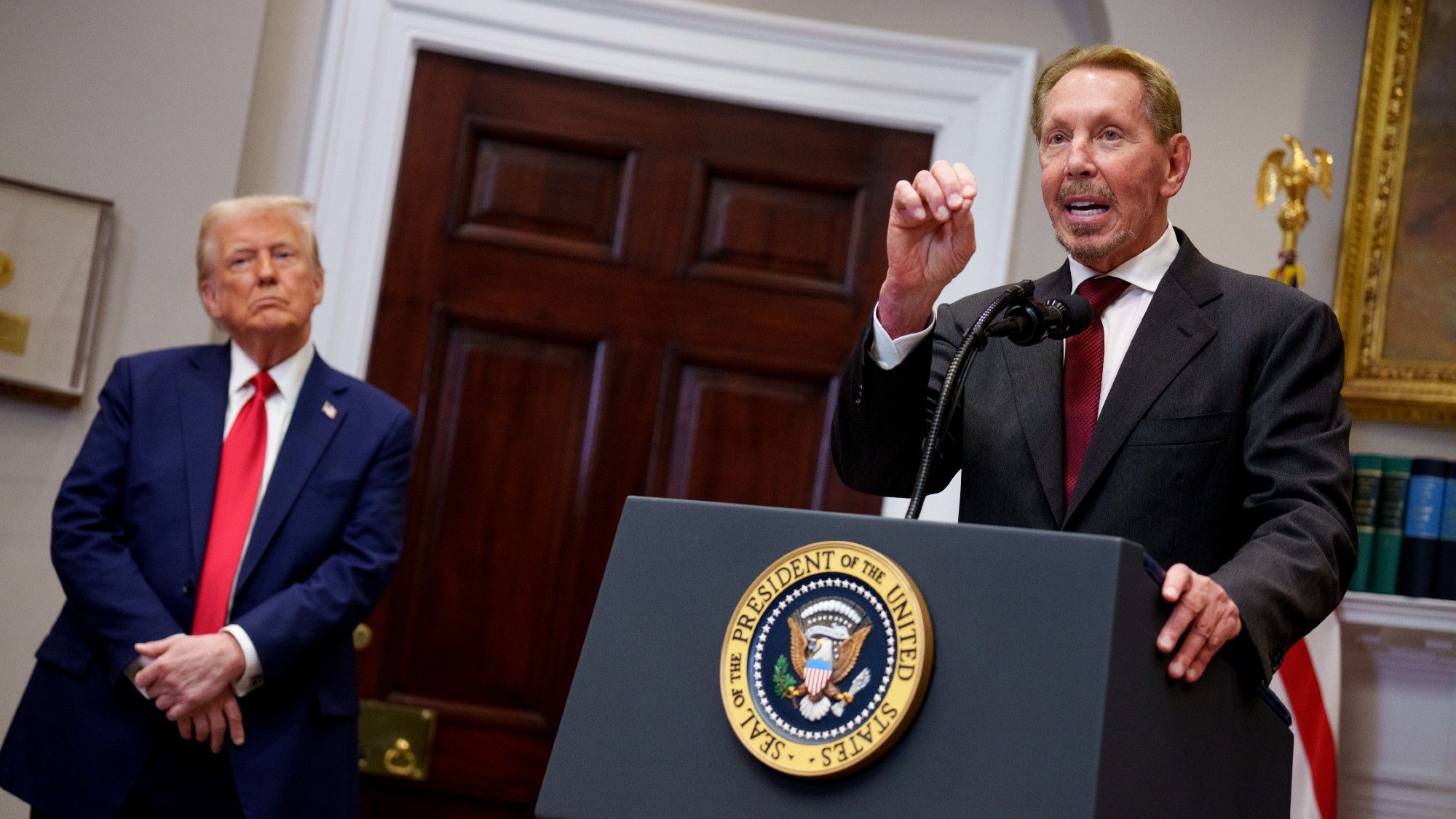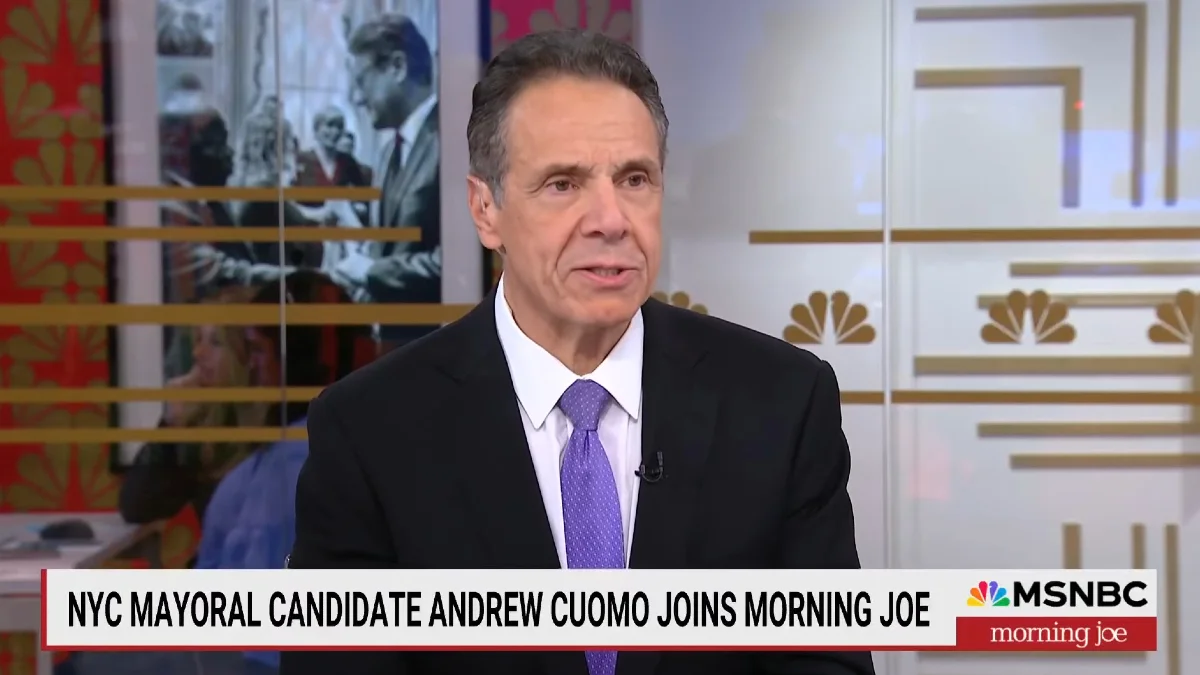Copyright The New Yorker

In his second Inaugural Address, back in January, Donald Trump couldn’t have stated his intentions more clearly: “During every single day of the Trump Administration, I will, very simply, put America first.” But last week, when Trump met with Javier Milei, the President of Argentina, to discuss the twenty-billion-dollar financial package that the Treasury Department has proposed to stabilize the Argentinian peso, the President sounded a different tune. Milei, a Trump ally and far-right conservative who is dedicated to slashing government programs and making a bonfire of regulations, has staked a great deal on maintaining the value of his country’s currency. “Just helping a great philosophy take over a great country,” Trump said. “Argentina is one of the most beautiful countries that I’ve ever seen, and we want to see it succeed, very simple.” The following day, the Treasury Secretary, Scott Bessent, doubled down on the Administration’s commitment to Argentina, which, pretty as it is, is also heavily indebted, perennially troubled, and not a major trading partner of the United States. (Last year, the U.S. exported $16.5 billion worth of goods and services to Argentina, compared with $384.4 billion to Mexico, and $78.7 billion to Brazil, Argentina’s neighbor.) At a press conference last Wednesday, Bessent said he was working on another twenty-billion-dollar support package, this one financed by banks and investment funds rather than the U.S. taxpayer. Milei, who was elected in November, 2023, cuts a dramatic figure in Latin American politics. Like Jair Bolsonaro, the former President of Brazil, he rose to power by presenting himself as a brash, anti-establishment populist. Although he is sometimes compared to Trump, Milei identifies himself more as a free-market economist of the Austrian school, committed to free trade, unfettered markets, and dismantling the government. (He has described himself as an “anarcho capitalist.”) To some American conservatives, he is an inspirational figure. During his first year in office, Milei introduced economic “shock therapy,” slashing government spending by about thirty per cent, partly by cutting pensions and reducing the wages of public employees. These ultra-austerity policies helped Argentina to post a budget surplus in 2024 for the first time in fourteen years. The inflation rate has dropped from roughly a hundred and sixty per cent to under fifty per cent. In February, Milei appeared in Maryland at CPAC, the annual conservative jamboree, where he presented a chainsaw to Elon Musk. In April, the International Monetary Fund, which for decades has promoted versions of the austerity and deregulation policies that Milei adopted, rewarded Argentina with a new loan of twenty billion dollars. One sympathetic commentator hailed “Milei’s Economic Miracle.” Any hopes that the new I.M.F. loan might bring to an end Argentina’s need for external support were soon dashed. Milei’s spending cuts imposed heavy costs on pensioners, public-sector workers, and others who relied on the state. He promised that his harsh policies would unleash a wave of investment and expansion, but, in the first half of this year, the country’s nascent economic recovery stalled. Unemployment started climbing again. Businesses also suffered, and Milei’s popularity declined. At the start of September, after his party lost a local election in Buenos Aires province, traders dumped the peso, which the government had pegged to the dollar to restrain inflation. (When the value of a currency falls, imports get more expensive, which pushes up over-all prices.) Until the Trump Administration came to the rescue, Milei was facing the prospect of a currency crisis of the sort that Argentina has experienced many times before. The twenty-billion-dollar credit line that the Treasury Department has established will provide the Argentinean government with access to dollars, which it can use to support the peso in the foreign-exchange market. The package will be financed through the Exchange Stabilization Fund (E.S.F.), a pot of federal money that is usually reserved for genuine emergencies. And it is only one of the ways that the Treasury Department is exploiting the E.S.F. Twice in the past couple of weeks, it has entered the markets and purchased pesos on its own behalf. Bessent has also suggested that the Treasury could buy Argentinean government bonds, although it doesn’t seem to have taken this step so far. There is a precedent of the Clinton Administration using the E.S.F. in 1995 to support a stricken Mexican economy after Congress refused to approve a bailout. But that rescue package was for a major trading partner, it was coördinated with the I.M.F., and it imposed strict conditions on the Mexican government, one of which was that Mexico committed some of its oil revenues as collateral for the U.S. loan, which was eventually repaid ahead of schedule. The Argentina rescue is purely an American one, and, in public at least, it doesn’t appear to have any conditions attached to it. “What’s worrisome here is that Bessent is repeatedly saying we will be there for the long term and we will do whatever it takes,” Maurice Obstfeld, a former chief economist at the I.M.F., told me. “He is effectively saying to foreign investors, ‘You will be able to get out whole.’ ” That’s welcome news not only for Milei and his beleaguered government, which will hold nationwide midterm elections on Sunday, but also for American hedge funds that have been investing in Argentinean assets. One of these funds is Discovery Capital Management, founded by the investor Robert Citrone. At the end of last month, the journalist Judd Legum pointed out that Citrone is a former colleague of Bessent’s from 2013, when they both worked for George Soros. Subsequently, the Times reported that Citrone was “in close contact with Mr. Bessent in the lead-up to the Treasury announcement last month.” In political terms, the rescue package for Argentina could end up being an albatross around Trump’s neck. Even some of his Republican allies have criticized it. In September, when the swap agreement was announced, Iowa senator Chuck Grassley asked why the U.S. should bail out Argentina when the country had recently taken advantage of Trump’s trade war with China to sell more than a million tons of soybeans to the Asian nation. “Family farmers shld be top of mind in negotiations by representatives of USA,” Grassley wrote on X. Last week, on the same platform, the Georgia congresswoman Marjorie Taylor Greene weighed in: “Americans are getting decimated with high cost of living and skyrocketing insurance costs. . . . Tell me how it’s America First to bailout a foreign country with $20 or even $40 BILLION taxpayer dollars.” Bessent insists the rescue isn’t a bailout because under the currency swap agreement Argentina exchanges pesos for dollars. But the U.S. government has no need of pesos. It expects to be repaid eventually in dollars, and it’s unclear when—or if—the government in Buenos Aires will be in a strong enough position to do this. In a tacit admission that supporting Milei could prove costly, Bessent has argued that it’s worth doing on strategic grounds. A couple of weeks ago, he said that a successful Argentina led by Milei could serve as a “beacon” to other Latin American countries, such as Bolivia, Ecuador, and Colombia. “It’s like the Iraq War on steroids: this will spread democracy through the Middle East,” Obstfeld, who is now a senior fellow at the Peterson Institute for International Economics, told me. If Republican criticism of the Argentina rescue operation spreads, there must be a question of how long Trump will stick with it. Some of his own statements have already raised doubts. At last week’s meeting in the White House, he said, “We don’t have to do it. It’s not going to make a big difference for our country. But it will in terms of South America.” Commenting on the upcoming election in Argentina, he said, “If [Milei] wins, we’re staying with him, and, if he doesn’t win, we’re gone.” These comments prompted a sell-off in the Argentinean markets, and local opposition leaders claimed Trump was trying to bully voters into supporting Milei’s party. In what looked like an effort to calm the markets, Bessent said the U.S. government would continue to provide support for Argentina as long as it followed a conservative path: the financial support is “not election-specific, it is policy-specific,” he explained. But this formulation is hardly the final word—if Milei’s party fares poorly in the election, its austerity program will face more resistance. If the elections go well for Milei, the Argentinean government will still need to find an estimated eighteen billion dollars next year to meet principal and interest payments on the country’s vast stock of foreign-denominated debts. At this stage, Bessent’s suggestion that private investors will step in to meet the funding gap is mere vaporware. Even if the country eventually succeeds in attracting investment, more American resources may also be required to stabilize the peso, which most economists agree is overvalued relative to prices. Another option would be to drop the dollar peg completely and let the markets determine the value of the Argentinean currency. But that would likely send it tumbling, which would raise inflation and undermine one of Milei’s main achievements. As long as Milei is unwilling to accept this outcome, his government will likely need more support from abroad. “The problem with Argentina is that there are no good options given the deep political polarization,” Obstfeld said. He added that if Milei sticks with the policy of trying to maintain the value of the peso, and the Trump Administration goes all in to support him, “basically, the U.S. is going to have to give more money to Argentina. At some point, you could pay for the expanded Obamacare subsidies with the money you are paying. I just don’t think that is politically sustainable.” ♦



